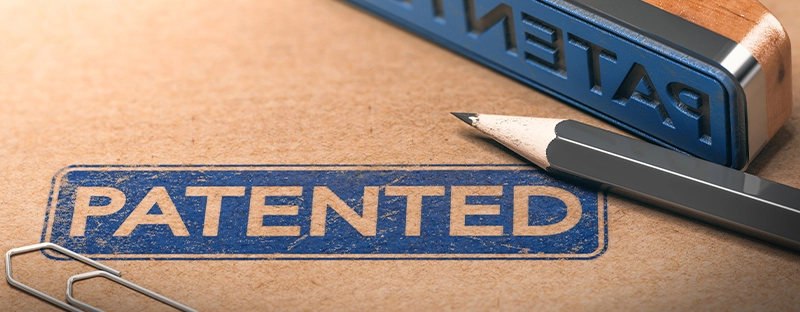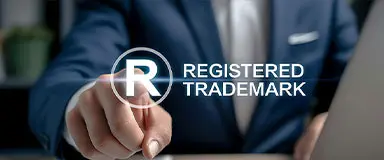Practical tips on choosing the right filing timing and trademark classes to register a clothing brand and reduce the risk of USPTO refusals when launching a new business line.
Trademark vs. Patent: Intellectual Property Protections Explained
Written by Emily Brooks ·

Your intellectual property is, in most cases, the heart of your business or creative expression. When you design a product or invent something new, you can apply for a patent to state that this invention is solely yours. However, this isn’t the same as a trademark, which applies to brand identifiers like names, slogans, and logos. Let’s take a closer look at the definitions of trademarks and patents and when you need to apply for either one.
Understanding Trademarks
A trademark is literally a mark that is tied to your trade — in other words, it’s a brand identifier for your business. While trademarked identifiers are usually company names and logos, they can also be slogans, catchphrases, particular combinations of colors, and even soundbites. For example, the MGM roaring lion is a trademarked sound. If another company were to utilize this to raise awareness of its own brand, MGM would likely be able to sue that company for trademark infringement.
Understanding Patents
A patent, on the other hand, isn’t concerned with brand or business identifiers. Someone can apply for a patent if they have invented something new. That invention could be something physical or digital — as long as it’s unique and usable in some sort of industry, it’s likely to be eligible for a patent. Recent digital patents include a rising number of AI innovations. Since 2018, applications for AI patents have risen 33%.
A patent grants the applicant — usually the inventor or the business the inventor works for — exclusive rights to manufacture, sell, and profit from their design for 20 years. Successfully applying for a patent means that no one else can legally reproduce this design. If they do, you can take legal action.
When Do I Need a Trademark?
If you have anything that uniquely identifies you as a brand, you should consider applying for a trademark registration. Registering your trademark provides legal protections and allows you to confidently take legal action if you discover that someone is using your name or slogans.
Consider registering a trademark if you have:
- A company name or online identifier such as a YouTube personality name, popular Instagram name, or other stand-out name.
- A logo.
- A slogan.
- A product name that’s unique and possible to trademark — you can’t trademark “Dog Food,” for example, but you may be able to trademark PowerPupChow.
- Unique brand colors or color schemes — check that the design company/individual has given you full ownership of any branding designs before attempting to trademark them.
- Soundbites such as an audio catchphrase or advertising jingle.
Protecting your trademarks helps you create a roster of brand identifiers that no one else can profit from without the risk of being sued for trademark infringement.
When Is a Patent Relevant?
As an inventor or innovator, you may create something that’s different enough from anything else around to make it worth patenting. A new pharmaceutical drug can be patented, and often will be, to prevent another pharmaceutical firm from copying the formula and profiting from it. Someone who designs a new drivetrain for an electric bike can also apply for a patent.
If you want to be the sole person who profits from your invention, applying for a patent is essential. You may decide that you want your design to be in the public domain to benefit numerous people. A patent would still ensure you had the historical credit for inventing the innovation and would prevent someone else from fraudulently applying for that patent and profiting from your hard work.
Protecting Your Intellectual Property
Whether you’re an innovator or an influencer, you need to consider how you protect what you create. Apply for patents as soon as you have a completed design, formula, or blueprint for anything new. It can take 22 months to get a patent approved, which is why it’s critical to get started sooner rather than later.
Trademarks are essential if you want to ensure you’re the only one who profits from your brand. Trademark research, registration, and subsequent monitoring can help you build a recognizable brand that no one can take from you.


